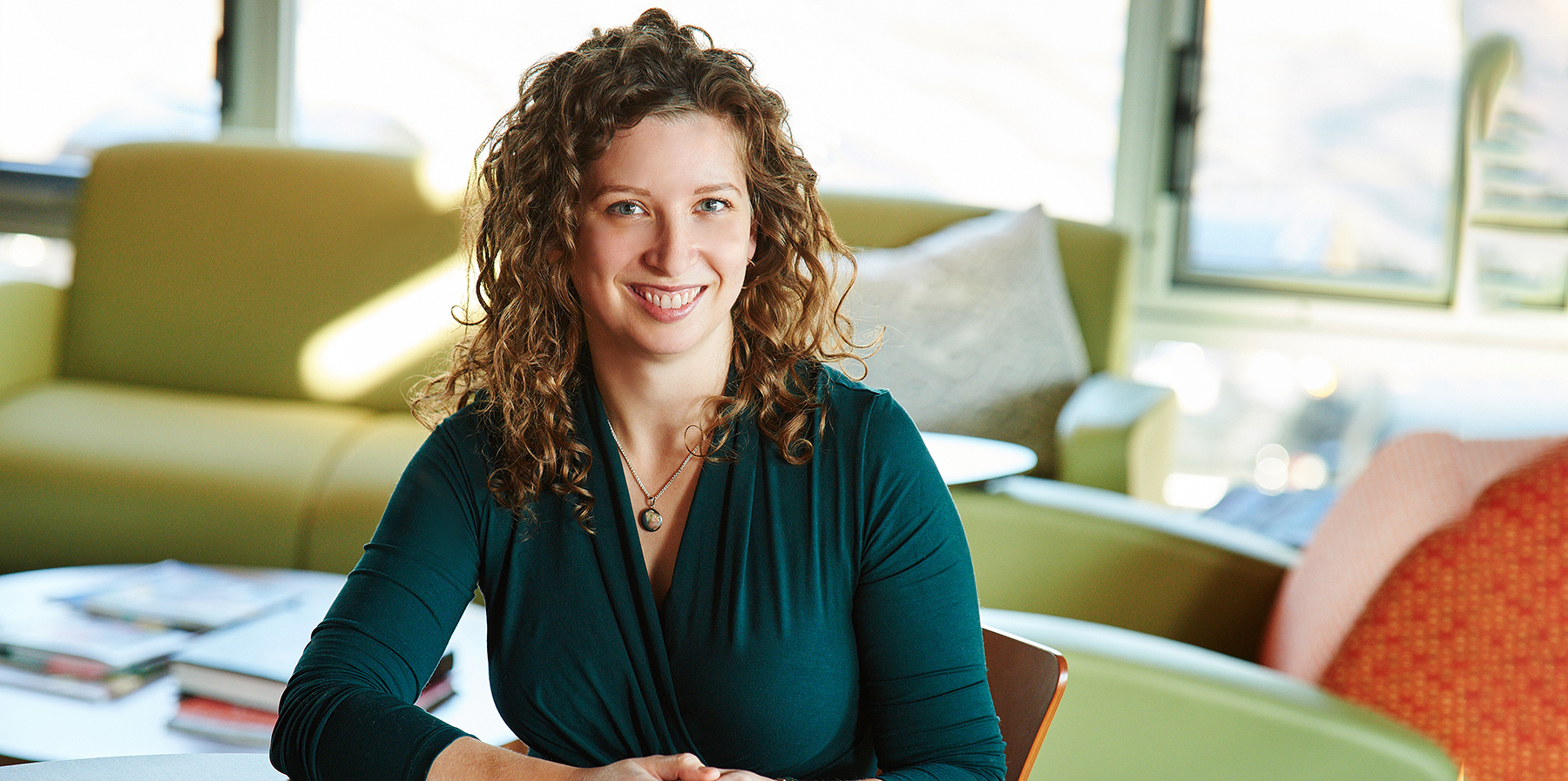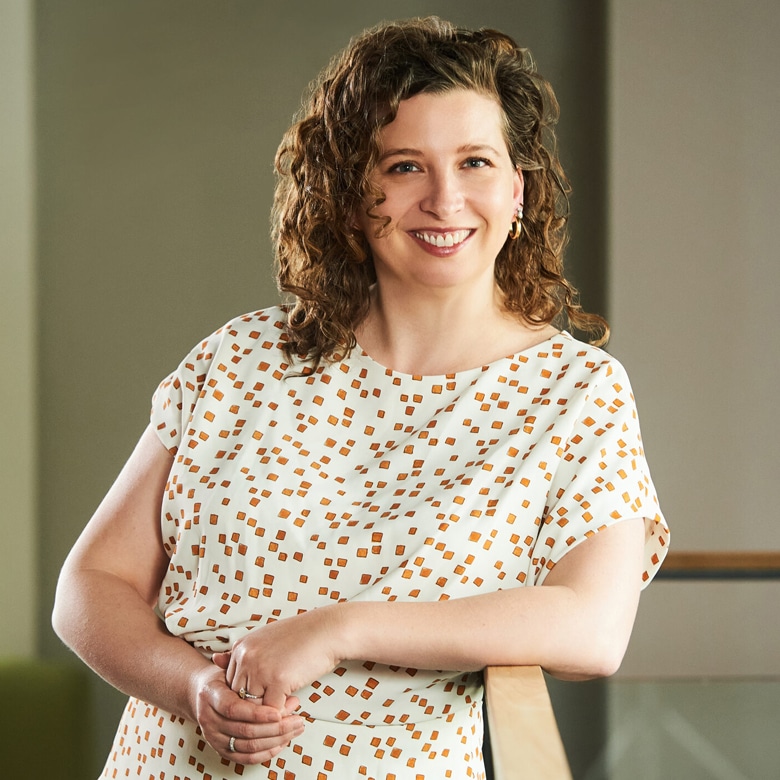How did your career journey lead you to Geneva Global?
I won a bet in a high-stakes poker game! Just kidding. That would be more exciting than the real story, which is that I was working in global health fundraising at Boston University, had finished an MBA through night classes, and my husband and I were ready for something new.
To help organize our thoughts, I opened Excel and we started to make a list of what we wanted in our lives and jobs. Then we looked at various cities, weighed each characteristic, and ran the analysis. Is that crazy? Absolutely. But the process had us talking and debating, and that was what we needed.
So we had a sense of place, but what of purpose? I had been working in the nonprofit sector for years and wanted to continue to make a meaningful difference. As to what kind of work, I sat down with a pen and paper and tried to describe how I like to work and what motivates me. With the results, consulting was an obvious match. I love the process of breaking down problems and finding ways forward.
When I became aware of Geneva Global—a firm that specializes in philanthropy, problem solving, and global development—it was a near perfect match. I interviewed, accepted the position, and we moved—all in under three weeks. (Our cats took a year to forgive us for those six hours in the car.)
How has your role at Geneva Global evolved?
In a professional sense, I have a type: I join a company, begin exploring, and end up holding several different positions. I love building things, so have often joined teams where the work was just beginning or a big shift was on the horizon.
I joined Geneva Global in 2013 in the role of Philanthropy Advisor as the donor advising team was forming and in a high-intensity phase. I took on a Director role as the team grew and as our client portfolio expanded. I now lead the donor advising team as Senior Director. We’ve nearly doubled in size, in terms of people and revenue, in the last few years. In addition to team responsibilities, I sit on Geneva Global and Global Impact’s combined Executive Leadership Team.
I joke with Nathaniel, my boss, that I can’t help being curious. Questions take me places.
What fulfills you most about your role?
Frankly, I love my job. It’s a great fit for how my brain works, what I enjoy doing, and the meaning that I desire in my career.
Leading the team is maybe a third of my role and the most important. I find a lot of joy (and challenge) in creating a culture and team space that reflects the values of Geneva Global and everyone on the team. It’s a space where success depends on collaboration instead of competition: when one of us shines, we all shine. It’s a team that manifests our community agreements in our daily work.
Working with many different types of clients offers me regular doses of newness and change, and presents no end of problems that need thinking through. I enjoy being an advisor, which really means getting on a call or getting out the whiteboard and hashing through scenarios until we land at the best option. I equally enjoy being “in the weeds” and getting the work done. I use that same lens on the Executive Leadership Team when we’re debating direction for Global Impact and Geneva Global.
Finally, I believe that philanthropy makes a difference, and that I make a difference when I work in this field. Does it mean I don’t see the problems in philanthropy? Yes, I do. It’s a wild sector with rules that don’t make sense and the serious potential to cause harm. But at its core, philanthropy is a desire for change for the better. And that, I understand.
What advice would you give to someone who wants to work in philanthropy (or philanthropy consulting)?
If business is about profit, philanthropy is about people. My advice is to have patience, understanding, and high emotional intelligence. This is a sector where it’s more common to be emotionally invested in the work than not: that goes for funders and nonprofits both. Be prepared to understand the webs of relationships, dynamics, power, biases, and expectations (explicit and implicit) that influence clients as they make decisions. Another tip: be prepared to understand these very things about yourself. That’s your responsibility as you help drive change for the better.
What are you most excited about for the future of philanthropy?
I’m excited to continue to see the act of philanthropy—as well as the sector as a whole—be challenged to be anti-racist and decolonized. Will philanthropy be a catalyst of structural change? Will it be a bellwether? Or will a sector so focused on change be unable to change itself?
I work a lot on donor collaboration and it still excites me. Working together just makes sense. I’m very interested in how collaboration will evolve over the next ten years. Will we see a merging of funders? Will we see true innovation from funders on how they support nonprofit collaboration? What would nonprofits do if they didn’t feel they were in competition with their peers for funding?
In the age of CDs, the idea of renting music (e.g., Spotify) seemed outrageous. And yet, here we are. I want to see philanthropy’s next Spotify.
What are you reading right now?
Trashy romance or maybe a fantasy novel. After a day of work and after getting our girls into bed, I’m looking for something light and entertaining. Also, I not-so-secretly think having a second career as a romance novelist would be extremely fun. Also fun? Daydreaming about one’s pen name.
On a more reflective note, reading is everything. It’s comfort, inspiration, escape, and answers. Reading requires one to simultaneously look inward and out to the horizon. Even the most mundane writing—the back of a cereal box, the ads on the train—offers opportunity. Why did they choose those words? Is that what they meant to say? Is that…another typo?!


